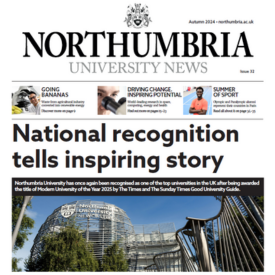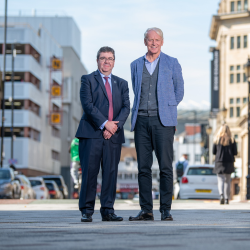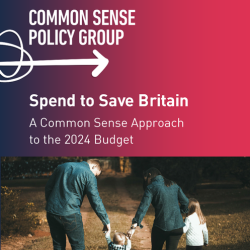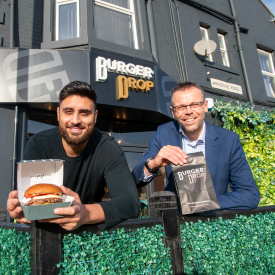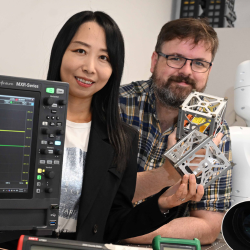-
Study
-
Undergraduate
- Search for a Course
- Undergraduate Open Day & Events
- Application Guides
- Northumbria University UCAS Exhibitions
- Foundation Years
- Undergraduate Fees & Funding
- School & College Outreach
- Continuing Professional Development
-
Postgraduate
- Postgraduate Study Degree
- Postgraduate Research Degrees
- Postgraduate Open Days and Events
- Postgraduate Fees & Funding
- Flexible Learning
- Thinking about a Masters?
- Continuing Professional Development
- Change Direction
-
Student Life
- The Hub - Student Blog
- Accommodation
- Life in Newcastle
- Support for Students
- Careers
- Information for Parents
- Students' Union
- Northumbria Sport
- Be Part of It
-
-
International
International
Northumbria’s global footprint touches every continent across the world, through our global partnerships across 17 institutions in 10 countries, to our 277,000 strong alumni community and 150 recruitment partners – we prepare our students for the challenges of tomorrow. Discover more about how to join Northumbria’s global family or our partnerships.
View our Global Footprint-
Applying to Northumbria
- European Union
- Our London Campus
- Northumbria Pathway
- International Events
- Entry Requirements and Country Representatives
- Regional Offices
-
Northumbria Language Centre
- Faculty Requirements
- Acceptable English Requirements
- Pre-sessional English Language and Study Skills
- Academic Language Skills Programmes (ALS)
-
International Fees, Funding & Scholarships
- International Undergraduate Fees
- International Undergraduate Funding
- International Masters Fees
- International Masters Funding
- International Postgraduate Research Fees
- International Postgraduate Research Funding
- International Money Matters
-
Life at Northumbria
- International student support
- Careers
-
International Mobility
- Current Northumbria Students
- Incoming Exchange Students
-
-
Business
Business
The world is changing faster than ever before. The future is there to be won by organisations who find ways to turn today's possibilities into tomorrows competitive edge. In a connected world, collaboration can be the key to success.
More on our Business Services -
Research
Research
Northumbria is a research-rich, business-focused, professional university with a global reputation for academic quality. We conduct ground-breaking research that is responsive to the science & technology, health & well being, economic and social and arts & cultural needs for the communities
Discover more about our Research -
About Us
-
About Northumbria
- Our Strategy
- Our Staff
- Place and Partnerships
- Student Profiles
- Alumni Profiles
- Leadership & Governance
- Academic Departments
- University Services
- History of Northumbria
- Contact us
- Online Shop
-
-
Alumni
Alumni
Northumbria University is renowned for the calibre of its business-ready graduates. Our alumni network has over 244,000 graduates based in 178 countries worldwide in a range of sectors, our alumni are making a real impact on the world.
Our Alumni - Work For Us
What will I learn on this module?
This module provides a two-fold approach to your professional practice within a real world context. Firstly, it foregrounds the importance of a work placement or equivalent project in you gaining understanding of the operations of the media industries. Classes will focus on you developing a wide range of skills to equip you for a media career, ranging from the expertise needed to set up and operate as a freelancer, through negotiating and networking skills, to employment rights and idea development. This contextual section of the module also aims to introduce you to the requirements and considerations facing graduates about to enter the media and creative industries, in order to help you bridge the gap between education and post-graduation employment. During this section you will develop greater awareness and first-hand experience of the industries in which you hope to work as well as hone your professional attitude, etiquette and employability skills. You will learn career development and entrepreneurial skills; you will be supported in the research, development and writing of a detailed career development plan, and the achievement of a negotiated ‘smart’ target in the pursuit of the first stages of that plan – such as updating a CV, increasing industry contacts, or researching industry roles. Secondly, you will be supported in the search for and undertaking of a work placement or brief equivalent negotiated project giving you exposure to professional practice within the media industry, which you will carry out and evaluate within the scope of the module, negotiated and agreed within the parameters dictated by the production environment and the opportunities available at the time of the module.
How will I learn on this module?
You will engage in two main areas of study during this module. The first will deal with the main pathways into the industries and introduce you to issues of employment and work experience via means of a work placement or equivalent negotiated project giving you exposure to external industry practice. The second pathway will encourage you to focus on a detailed career development plan, and the specific employability skills which you will need to develop in order to embark on that plan. Both areas are delivered through similar patterns.
One element of your module will be delivered through a combination of lecture and small-group seminars, supported by a combination of online resources and face to face interaction. Lectures and pre-recorded resources will enable the tutor or guest speaker to discuss the key dynamics of the media industries in an in-depth manner, whilst the shorter small-group seminars will be structured to reflect the core issues and themes of the module in the context of practical exercises. These sessions are focused on the research and planning necessary to construct a career development plan and identify areas of weakness to be targeted through an individual ‘smart’ target.
The second element of the module will expect you to engage in a work placement, live professional brief or negotiated equivalent programme of work to gain experience of the professional environment. Whilst you will be introduced to the requirements of a placement in classes, and staff will provide access to possible placements through online module resources, you will be expected to research and set up your own placement or employability project and record and reflect on these professional experiences to create a personal development report for submission. This part of the module will also offer student support in the form of a one to one tutorial.
This module will be entirely assessed on your delivery of a portfolio, the centrepiece of which will be the report on your work placement or equivalent project, and your career development plan. In support of this you will be asked to identify and address gaps in your own employability skills, and develop tools such as CVs and show-reels to assist you in the search for employment, which will be formatively assessed in classes and can be attached to your portfolio as evidence of your professional development.
How will I be supported academically on this module?
Professional Practice 2 tackles the professional application of what it means to be a media practitioner in a dynamic and ever changing industrial landscape. Whilst lectures and guest speakers will provide the skills and contextual knowledge necessary for your own professional development, seminars will explore employability and personal development through a series of practical exercises, supported by an individual tutorial during the second half of the module to explore planning for the work placement or equivalent programme of work. Further one to one meetings can be arranged also during drop-in student support and feedback hours. Our careers service, Graduate Futures, also offer extensive support in looking for placements, writing cover letters, developing a CV, and a host of activities and training focused on building your employability. And preparing you to work in a professional environment.
You will also receive written feedback on your final summative submissions which will detail areas that could be improved in future work. You will also be offered the opportunity to receive further verbal feedback following this formal assessment, so that you can follow up any concerns you have regarding your critical development and future learning.
What will I be expected to read on this module?
All modules at Northumbria include a range of reading materials that students are expected to engage with. Online reading lists (provided after enrolment) give you access to your reading material for your modules. The Library works in partnership with your module tutors to ensure you have access to the material that you need.
What will I be expected to achieve?
Knowledge & Understanding:
1. Gain knowledge and critical understanding of contemporary professional work and employment practice within the media production industries and related sectors, including entrepreneurial and commercial considerations
2. Demonstrate a knowledge of career development techniques and methods, leading to self-awareness and understanding of personal aptitudes, weaknesses and career goals
Intellectual / Professional skills & abilities:
3. Demonstrate enhanced employability skills, professional credibility and identity development as a result of undertaking a work placement, a live brief or equivalent programme of work-related learning
4. Synthesise, reflect on, evaluate and present experience acquired from work-related learning in order to set and achieve SMART goals, and draw up strategies for career development planning and entry to a media production industry beyond graduation
Personal Values Attributes (Global / Cultural awareness, Ethics, Curiosity) (PVA):
5. Reflect on and articulate ethical standpoints and debates relating to issues such as unpaid work, diversity, precarious labour, representation and wellbeing within the media industries and related creative sectors
How will I be assessed?
This task is the first real opportunity which you will have to consider the business context of your careers beyond graduation. It also gives you invaluable real industry experience, and the reflection on that experience is designed to give you a strategy that will support you through Level 6 and beyond graduation.
Assessment is via a Professional Practice portfolio containing two different elements, each negotiated with you on an individual basis addressing all MLOs..
This portfolio will firstly include a report documenting and reflecting on a work experience placement, series of interviews, live brief production or negotiated equivalent programme of work-related learning. This addresses MLOs 1, 3 & 5 in particular and receives 50% of the module mark.
Secondly, you will research and write a detailed career development plan, outlining your staged career goals both up to and in the years after graduation. This will require underpinning sector research and should also include an initial personal short-term SMART goal to be completed within the timescale of the module. This may range from an updated CV to a written reflection on a networking event, which you have attended; from a show-reel to a short industry case study. This plan will address MLOs 2 & 4 and receives the other 50% of the module portfolio mark.
Module tutors will formatively assess draft proposals and check that these proposals are appropriate to the module learning outcomes, and that they will develop your employability strategy before signing them off and monitoring your progress in achieving them.
Your work-related learning plans and career development plans are formatively evaluated verbally in class and through short tutorials. Personal development goals can be discussed in meetings with individual guidance tutors.
Feedback is through face to face tutorials and also through the use of peer review. Feedback will explicitly draw attention to the ways in which future performances can be improved.
Pre-requisite(s)
none
Co-requisite(s)
none
Module abstract
Professional Practice 2 will provide you with a detailed understanding of employment within the film and television industries, and related sectors. You will undertake a programme of work-related learning such as a work placement, a series of interviews with professionals, or an external live brief during the module and learn how to present yourself as a viable employee in terms of valuable work skills and professional etiquette. You will also learn career development skills, and set personal goals such as the research and writing of a career development plan. In essence the module considers what it is to become a professional practitioner, in terms of a workplace mindset which will empower you to enter into the film and television industries as an asset to any employer, and equips you with some of the industry knowledge, transferable skills and planning tools to go into your final year with a clearly defined set of career goals.
Course info
UCAS Code P310
Credits 20
Level of Study Undergraduate
Mode of Study 3 years Full Time or 4 years with a placement (sandwich)/study abroad
Department Arts
Location City Campus, Northumbria University
City Newcastle
All information is accurate at the time of sharing.
Full time Courses are primarily delivered via on-campus face to face learning but could include elements of online learning. Most courses run as planned and as promoted on our website and via our marketing materials, but if there are any substantial changes (as determined by the Competition and Markets Authority) to a course or there is the potential that course may be withdrawn, we will notify all affected applicants as soon as possible with advice and guidance regarding their options. It is also important to be aware that optional modules listed on course pages may be subject to change depending on uptake numbers each year.
Contact time is subject to increase or decrease in line with possible restrictions imposed by the government or the University in the interest of maintaining the health and safety and wellbeing of students, staff, and visitors if this is deemed necessary in future.
Useful Links
Find out about our distinctive approach at
www.northumbria.ac.uk/exp
Admissions Terms and Conditions
northumbria.ac.uk/terms
Fees and Funding
northumbria.ac.uk/fees
Admissions Policy
northumbria.ac.uk/adpolicy
Admissions Complaints Policy
northumbria.ac.uk/complaints





